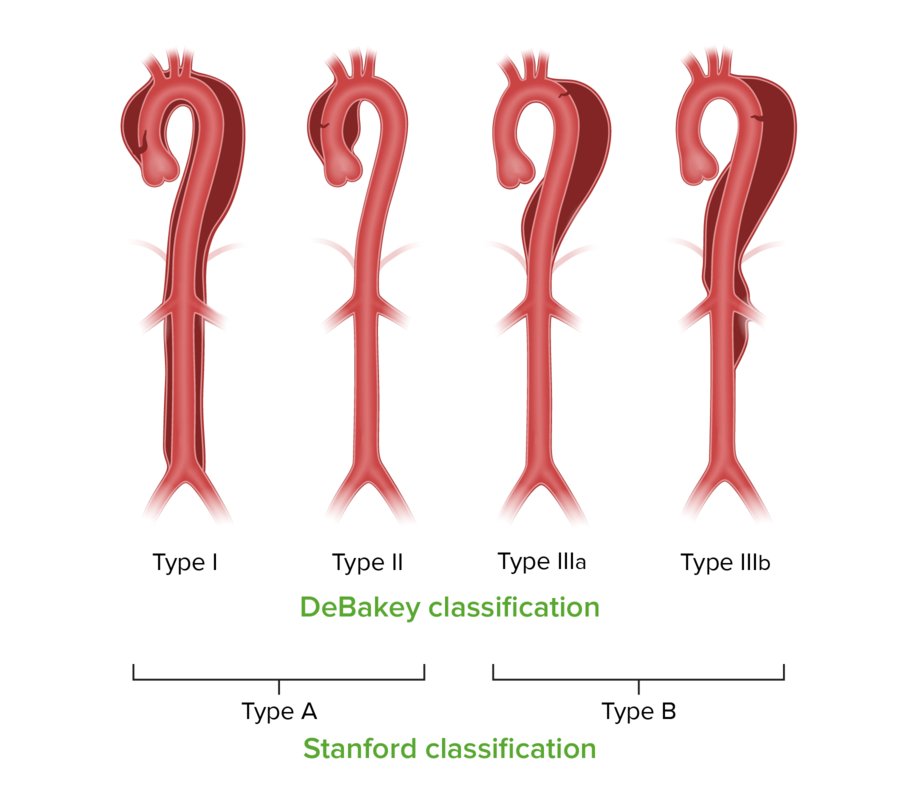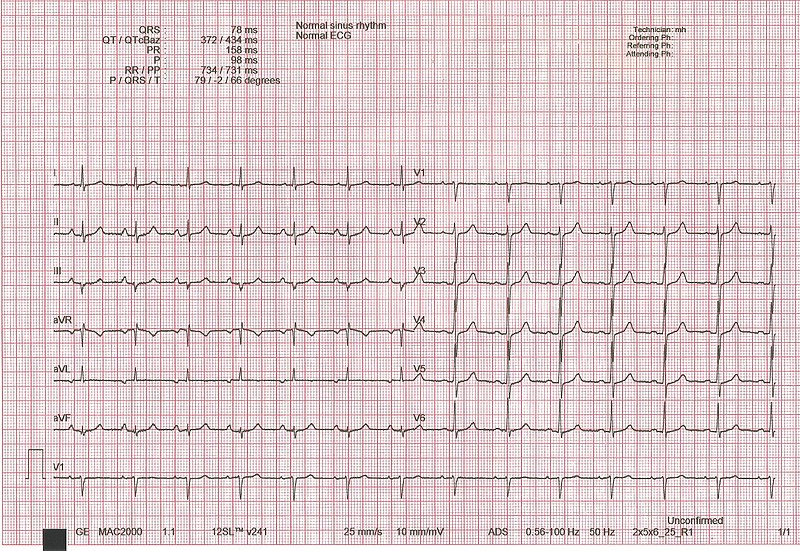Playlist
Show Playlist
Hide Playlist
Cardiac Case: 55-year-old Man with Sudden Anterior Chest Pain Radiating to Back
-
Cardiac Case 55-year-old Man with Sudden Anterior Chest Pain Radiating to Back.pdf
-
Reference List Cardiology.pdf
-
Download Lecture Overview
00:01 This case involves a 55-year-old man who has a history of poorly controlled hypertension. 00:07 Either he hasn't been taking his medicines well enough or perhaps he hasn't been getting the right medicines and he also has anterior chest pain. 00:17 So, he comes to the emergency room. 00:19 He complains of quite severe anterior chest pain that radiates through to his back. 00:25 So, he feels it not only in the front but also in the back. 00:28 It began suddenly an hour ago and it made him very anxious that something terrible was happening. 00:34 The history is hypertension not treated or not treated adequately and you will note, blood pressure's markedly different in the two arms. 00:45 So, in his right arm, the blood pressure's 160/102 mmHg but in the left arm it's only 110/74 mmHg. 00:53 This implies that there's some sort of blockage between the right arm and the left arm supply of the aorta. 01:00 His heart rate is 94/min and his femoral pulses are also very difficult to feel. 01:07 So, what's critical in this history? First of all, he's having anterior chest pain. 01:13 It's also important that it occurred very suddenly. 01:16 Usually the pain of myocardial infarction develops gradually over a few minutes. 01:20 In addition, he has hypertension so he has a much higher risk of a cardiac event. 01:26 The blood pressure in the two arms and difficult to feel in the femoral pulses is very suggestive of a dissection of the aorta which is a complication of poorly treated or untreated hypertension. 01:40 So, what do we need to do? Again, a CT scan with contrast to see the aorta, to see if there's a dissection. 01:47 And in fact, you can see where the arrows there's a dissection. 01:52 There's the CT scan of the aorta. You can see they lifted up component of the aorta where the dissection has occurred, where there's been a tear in the intima of the aorta and blood is getting into underneath the normal intima of the aortic artery and is absolutely causing a dissection. 02:14 This can be a highly fatal event because that dissection can rupture into the lung causing a huge hemorrhage and causing the patient to die very, very quickly. 02:25 So, this is a severe emergency and we have to treat it. 02:31 There's several treatments these days. 02:33 The first treatment is intravenous antihypertensive therapy to lower the pressure that's making the dissection and then we get a consult from vascular surgery. 02:42 They could either place a stent over the area of the dissection, the area of the tear and that would allow the whole thing to quiet down but if it looks like a difficult dissection to treat with a stent, then there would need to be immediate repair of the aorta in the operating room. 03:02 These days, the majority of these are handled with stent because it's much less traumatic to the patient but certain ones are so difficult and so, challenging to be done with stents that they require basically, an open chest procedure to repair the area of the dissection.
About the Lecture
The lecture Cardiac Case: 55-year-old Man with Sudden Anterior Chest Pain Radiating to Back by Joseph Alpert, MD is from the course Cardiovascular Cases.
Included Quiz Questions
A 55-year-old man presents with sudden anterior chest pain radiating to the back. Given the patient’s history, unequal blood pressures in the upper extremities and absent or weak femoral pulses are together most suggestive of which of the following?
- Aortic dissection
- Myocarditis
- Pericarditis
- Takayasu arteritis
- Giant cell arteritis
Which of the following would be the most appropriate approach to treating acute ascending aortic dissection?
- Intravenous antihypertensive therapy with emergent surgical correction.
- Intravenous antihypertensive therapy alone
- Surgical repair without antihypertensive therapy
- Stent placement without antihypertensive therapy
- Immediate angiography and revascularization
Customer reviews
5,0 of 5 stars
| 5 Stars |
|
1 |
| 4 Stars |
|
0 |
| 3 Stars |
|
0 |
| 2 Stars |
|
0 |
| 1 Star |
|
0 |
Dr. Alpert provides such a clear & concise overview about high-yield diagnosis & management strategies! Thank you for creating this very helpful lecture series!





